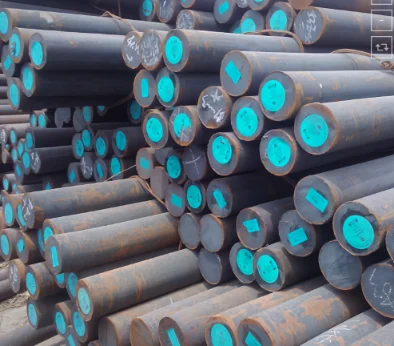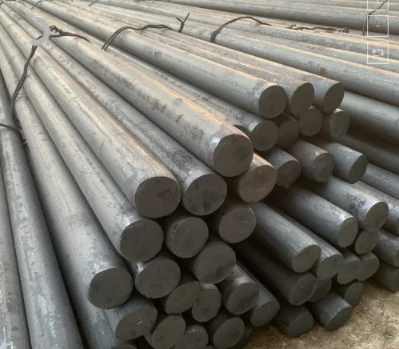
Buying Carbon Steel Pipe from China is something many contractors, engineers, and distributors do every day. China is one of the largest suppliers in the world, sending pipes to oil and gas projects, water networks, building sites, and mechanical workshops. The real question buyers ask is not whether supply is available—it is about quality. With so many producers and trading companies out there, you want to know if the pipes you receive match standards, last as promised, and arrive on time.
This is why it helps to know suppliers who are already trusted by many in the market. Qingdao Sunrise New Material Co., Ltd. is a global company with long experience in raw materials and steel exports. The firm supplies to over 100 countries, including Europe, Africa, the Middle East, and South America. It works closely with big mills, keeps warehouses at major ports, and has the capacity to handle urgent requests. Its products include Carbon Steel Pipe and other items that follow ASTM, API, EN, and BS standards. Buyers often mention the quick replies, stable pricing, and strong quality checks. If you want to learn more, you can look at their products or reach them via their contact page. For many, this type of supplier removes stress in global sourcing.
Why Do Buyers Face Risks With Carbon Steel Pipes From China?
The Chinese steel market is huge. You can find world-class mills that supply oil majors, and you can find small workshops that compete only on price. This wide choice brings both good and bad. The good part is more options. The bad part is uneven quality. Some pipes might look fine but fail once tested.
There are many reports of pipes shipped with thin wall thickness, poor galvanization, or even wrong labeling. For example, a pipe sold as ASTM A106 may not meet the right chemical or mechanical range. In a water project, this could mean leaks. In oil and gas, the risk is far higher because failures affect safety. This is why you must focus on what standards apply and how to confirm them before loading goods.
What Standards Should You Check Before Purchasing?
International standards are the base rule. They define the size, wall thickness, pressure, and testing needed for Carbon Steel Pipe. When you buy from China, the key is to match the right standard with your project.
ASTM A106 and ASTM A53
ASTM A106 covers seamless Carbon Steel Pipe for high-temperature service. It is used in power stations and refineries where hot steam moves all the time. ASTM A53 covers both seamless and welded pipes for general service. It is common for water, steam, or air under low pressure. Both need mechanical and hydrostatic tests. Checking these reports will tell you if the supplier is serious.
API 5L and API 5CT
API 5L is one of the most common codes for oil and gas pipelines. Grades like X42, X52, and X60 are picked depending on the pressure and the pipeline length. API 5CT is more about casing and tubing for wells. Grades such as J55, N80, or P110 are chosen based on the depth of drilling and the ground conditions.
EN 10217 and EN 10296
EN 10217 applies to welded pipes used under pressure, like in boilers or heating systems. EN 10296 is for mechanical and engineering pipes, often seen in cars, machines, or structures. Both require accuracy in size and strength.
BS EN 39
BS EN 39 is the rule for scaffolding pipes. This standard is strict because scaffolding safety is tied to workers’ lives. You cannot use pipes outside this code on a construction site where people depend on safe support.
Asking for Mill Test Certificates (MTC) that show compliance is a must. This one step filters out many weak suppliers.
How Can You Verify a Supplier’s Quality System?
Once you know the standards, you still need to be sure the supplier can repeat them with every order. Certifications and tests matter, but you should also look at the factory setup and how they manage stock.
Certification and Testing
Good suppliers will share approvals from SGS, TUV, BV, or RINA. Ask for test reports on tensile strength, chemical levels, and pressure resistance. A fresh report from the same pipe size you want to buy is better than a general one.
Production and Stocking Capacity
A supplier with several production lines is less likely to face delays. Large warehouse stock means faster delivery. Some companies even commit to shipping within two days for urgent small orders and stocking within ten days for larger contracts. That kind of timeline can help you meet project schedules.
Surface Treatments and Coatings
Carbon Steel Pipe often needs coating to avoid rust. Choices include black paint, galvanization, varnish, or anti-rust oil. You should check coating thickness and adhesion. A pipe that rusts in shipment adds costs later, so testing before delivery is smart.
What Role Does Third-Party Inspection Play?
Third-party inspection gives you an extra safety net. Groups like SGS or BV can check the pipes before shipping. They measure size, look at welds, and may run random tests. For buyers far away, this is useful. It lowers the chance that what is in the container is different from what was promised.
Why Is Fast and Transparent Communication Important?
In trading, slow replies can cause small problems to grow into major ones. Suppliers that answer fast usually show stronger responsibility. Before you place an order, see how quickly they reply to technical or delivery questions.
Ask for photos, short videos, or even live calls from the workshop. A supplier willing to show production openly is usually more reliable. This helps you build trust across borders.
Which Supplier Qualities Should You Look For?
Besides the technical side, there are some qualities you can check that reveal a lot about a supplier.
First, check pricing. If the offer is far below the market, think twice. It often means corners cut on material or tests. Second, see export records. A company that already ships to your region knows the standards and paperwork. Third, look at delivery. A good supplier will have stable stock and will deliver faster.
Qingdao Sunrise New Material Co., Ltd. is one example of a supplier that combines certificates, stock, and delivery speed. It provides certified Carbon Steel Pipe for global projects, with documents ready and short lead times. These are the supplier traits you should target when buying from China.

Conclusion
Sourcing Carbon Steel Pipe from China does not have to be risky. If you follow the right steps, you can lower the chance of problems. Start with the correct standards, ask for real certificates, request test reports, and use third-party inspections when you need to. Choose suppliers that respond quickly, ship fast, and have a record of global exports. With these steps, you protect your project from hidden costs or delays. When you find the right partner, buying from China is not only safe but also cost effective.
FAQ
Q1: What standards are most used for Carbon Steel Pipe worldwide?
A: ASTM A106 and API 5L are the most common, covering high-temperature and oil and gas pipelines.
Q2: How can you check if a supplier’s certification is real?
A: Ask for recent reports, confirm with SGS or TUV, and compare details with official standards.
Q3: Why should you care about pipe coating?
A: Coating keeps pipes safe from rust during shipping and storage. Good coating saves repair costs later.
Q4: What does third-party inspection add to the process?
A: It adds an independent check before goods leave the factory. Inspectors confirm size, surface, and mechanical strength.
Q5: How quickly can reliable suppliers deliver Carbon Steel Pipe?
A: Many strong suppliers can ship small orders within two days and stock larger ones in about ten days.






